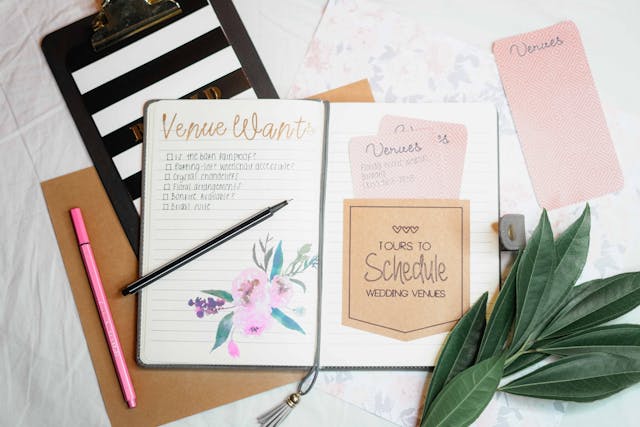
Event planning is a very challenging yet rewarding task that requires detail-oriented attention and creative problem-solving. Whether it is a small get-together or a large celebration, proper planning and organization are the keys to a successful event. From networking to celebration and even education, every step along the way contributes to creating a memorable experience. By following a structured approach and incorporating the right strategies, anyone can transform a vision into reality. This guide provides a detailed roadmap to ensure seamless event planning, covering everything from setting objectives to the final execution.
Define the Purpose and Set Goals
Every event begins with a clear understanding of its purpose and objectives. Whether it is a corporate conference, a wedding, or a charity fundraiser, the goals should guide every decision. Establishing a purpose helps determine the tone, audience, and desired outcomes. For instance, a corporate event might focus on brand building, while a wedding prioritizes guest experience. Defining goals also aids in measuring the event’s success post-execution, ensuring that the efforts invested align with the desired results. A well-defined purpose acts as the foundation, keeping all aspects of planning focused and cohesive.
Budget Planning and Resource Allocation
A realistic budget is essential for effective event planning. It not only dictates what’s feasible but also prevents overspending. Begin by listing all anticipated expenses, such as venue, catering, entertainment, and decorations. Don’t forget hidden costs like permits or insurance. Allocating resources wisely ensures that essential elements receive priority funding. Flexibility in terms of budgeting allows adjustments without affecting quality. Regular review of the budget during the planning process will keep finances under control, and it could ensure that the event proves to be both spectacular as well as cost-effective. A well-planned budget is the backbone of a successful event.
Venue Selection
Choosing an appropriate venue is the beginning, which forms the skeleton of the entire event. Match the location, accessibility, capacity, and ambiance of the venue with the purpose of the event. Ensure that the venues align with the theme of the event and are suitable for technical and logistical requirements such as sound systems, parking, and catering. For example, outdoor venues would have to plan contingency in case of weather conditions. Conducting site visits and meeting venue managers will address some potential issues beforehand. A good venue choice will not only enhance the guest experience but also simplify other logistically demanding aspects of the event.
Décor, Décor, Décor
Décor is a vital element to create an inviting atmosphere and to resonate with the theme of the event. The floral arrangement, lighting, and everything else contribute to the ambiance. To simplify your planning and achieve a cohesive look, you can get chair cover rentals online. This convenient option offers a wide selection of styles and colors to match any theme, with delivery and pick-up services that make the process effortless and stress-free. Keeping the décor a uniform piece, such as by keeping table settings, backdrops, and centerpieces, will make the strongest impression on attendees when leaving the event.
Create a Detailed Timeline Checklist
A timeline ensures the completion of all tasks within a tight time frame, eliminating those last-minute jitters when things need to be in place. Work from your event date and fill it backward, using major mileposts like vendor procurement and invitation mailing to determine those deadlines. Use a list of smaller tasks, such as planning transportation or gathering materials. Including buffer time to account for any unexpected delays lends flexibility. A well-choreographed timeline is something of a roadmap, as nothing is missed, and each detail falls into place like magic on the big day.
Vendor Choice and Coordination
Strong vendors are essential to hosting a successful event. With caterers, photographers, DJs, and decorators, picking experienced professionals guarantees smooth execution. Research and vet vendors with reviews, references, and quote comparisons. Clear communication regarding expectations, timelines, and budgets minimizes misunderstandings. Strong relationships with vendors lead to better collaboration, in which they understand the vision of the event and make their expertise count. Following up and confirming in due time ensures that all services are delivered as planned and creates a seamless experience for both hosts and guests.
Conclusion
Event planning involves creativity, organization, and adaptability to bring an idea to life. With the help of defined objectives, managing budgets, and focusing on guest satisfaction, even the most complex events can be carried out without any glitches. Strategic decisions, such as the use of artificial elements or working with trusted vendors, reduce stress and improve quality. Each step, from selecting the venue to coordinating the décor, adds up to making it a cohesive and memorable experience.


